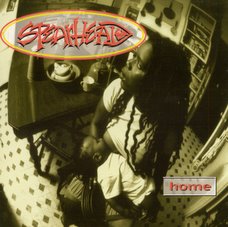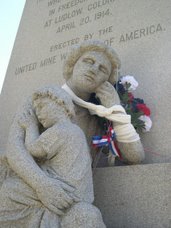

http://www.lewrockwell.com/orig7/philion1.html
I was sent this article of an interview with Jerry Lembcke, Professor of Sociology at Holy Cross and VVAW member since his return from Vietnam in 1969.
Lembcke makes some interesting and relevant points about the anti-war movement’s beliefs. One is the myth of the Vietnam veterans being spat upon by Americans when the veterans returned to the shores of the U.S..
Like Lembcke I’ve always believed this was a myth. I’ve repeatedly asked vets I’ve encountered if they had been spit on or knew anybody who had been spit on. The closest I’ve come is they knew someone who said they’d been spit on.
My own opinion of how the myth came about is the general feeling of returned veterans from Vietnam that their country had abandoned them when it was clear the war was going sour.
There was a psychological impression that we’d been spit on by many fellow Americans. What I experienced was either an angry attitude toward me for taking part in “killing babies” or a general sense of apathy with anything concerning the war.
I remember many parties I went to with old high school friends that I felt like an alien from another planet. I had the experiences of combat still fresh in my mind and felt a need to talk about it.
I soon found out talking about “it” would lead to me being even more of a pariah. My own friends would invariably ask me if “I’d killed somebody over there” followed by asking how it felt to kill someone.
When I enrolled at the University of Colorado in Boulder I felt like an alien. I was 19 but felt totally distanced from students the same age. This estrangement led me to gravitate to the UMC area where other vets hung out.
We’d end up sharing joints, telling war stories and skipping classes. All of us felt out of place amongst the students who had avoided going to war with deferments.
I also think us Vietnam veterans have to cop to playing the role of victims. The treatment of neglect and hostility by our countrymen surely isolated us. We broke off into our own tribe of vets aloof, angry and emotionally stunted.
The issue of PTSD wasn’t a consideration at the time. The diagnosis didn’t exist in the Diagnostic Statistical Manual (DSM).
Because we weren’t officially treated for the traumatic experiences until years later, we came together and attempted our own “slow boat ride home” without realizing it at times.
During WWII the troops went as units and returned as units in transport ships. By necessity they had to develop some form of unity and comradeship. The ride home gave them time to decompress somewhat following the horrors of what they experienced.
Troops in Vietnam for the most part didn’t come and go as a unit. Instead a system of troops arriving and departing individually was developed. Each individual had a personal date of expected return from overseas (DEROS).
When we left Vietnam most of us had no one from our unit leaving with us for the 15 hour flight back home. Instead of decompress by sharing our feelings and stories we tended to self medicate ourselves with the available booze on the flight.
Lembcke says “There’s a certain group of antiwar types who focus on what happens to the soldiers, how they’re damaged psychologically, physically,…I’ve been to a number of anti-war rallies now where all they talk about is PTSD and what happens to "our boys" when we send them off to war. It’s sort of a mirroring of the political right’s approach. They make the "support the troops" ideology the basis for supporting the war, and some strands in the anti-war movement now mimic that we need to oppose the war by "supporting the troops" and, I’ve been to some antiwar protests where very very little is said about the war itself!
We hear instead about getting the troops the help they need and heart rendering stories of parents of sons who have committed suicide after they come home, etc. That stuff from the anti-war left is as beclouding as similar rhetoric from the right, in that it takes us away from a political discourse, which we need in order to focus our energies around stopping the war and its causes. “
I agree with what he says. We can’t use supporting the troops as our main topic or our main focus. I do think we can put the issues of PTSD and “what happens to our boys (and young women –my words) when we send them to war" in some context of the main issue of the war itself.
I believe the voices of the combatants can be a powerful voice in opposing the war. Lembcke mentions the movie “Sir, No Sir” as a powerful example of troops during Vietnam resisting against the military.
“Well, the GI antiwar movement became a vitally important part of the antiwar movement during Vietnam. And that is likely to be the case today also. Lots of people are asking what’s the difference between today and Vietnam? Why isn’t there a movement today? One possible answer is that the movement within the military is not quite congealed yet, but that the potential is there. Hopefully Sir! No Sir! can have an effect on accelerating that development a bit.”
I plead guilty to being one of those pushing the PTSD issue as a speaker and activist against the wars in Afghanistan and Iraq. I do stress a reason why I speak so passionately about PTSD.
I firmly believe we need to intercede earlier rather than later in treating the trauma of the veterans not only for the sake of the veterans but for the sake of families, friends and the communities the vets live in.
By intervening early to treat PTSD we avoid and prevent the phenomenon of secondary PTSD inflicted on significant others by veterans. We prevent substance abuse, alcoholism, homelessness, incarceration, child abuse, spouse abuse, murder and several other destructive actions by untreated veterans.
For me, the main reason associated with ending the war and assuring treatment for the veterans is the potential of the emotionally healthy vet being a powerful voice to testify against the war and the militarism leading nations to war.
Iraq and Afghan veterans can be as powerful as their predecessors who resisted the Vietnam conflict. They can be the sequel to “Sir, No Sir” but we must assure they are equipped to do so. That means assuring treatment for those in need.
One of the things I’ve come to resent about “Sir, No Sir” is the historical timeline presented. It precluded many active duty troops who made a stand in Vietnam or immediately following Vietnam well before an organized resistance came to be.
I personally witnessed a black Marine with a sterling record in combat that came to the decision he couldn’t participate in the war any longer. This happened in Phu Bai.
The Marine was sent to the infamous prison system of the military in Vietnam and was slated to return to a combat unit to finish the remainder of his tour in Vietnam following his incarceration.
He never backed down despite constant abuse and pressure by commanders.
There were many of us who returned from Vietnam with time still left to serve in the military. Many of us reached the same decision as that Marine stranded in Vietnam.
We actively opposed the military alone without support of groups or others in our companies. Our support group became the others we ended up being incarcerated with following arrests or court martial.
There is an issue of responsibility that is necessary for the peace movement to include in its message. Veterans can’t be exonerated for individual actions violating the rights of another human.
The torture and abuse of a nation’s people can’t be written off as something that happens in time of war. We can’t plead we were only doing our duty if we know our actions were immoral and inhumane.
Too often I encounter vets who say they’re members of the peace movement but their beliefs and actions don’t demonstrate they are. Too often I sense an attitude of the barracks mentality I found in the Marine Corps. Too often there seems to be a reluctance to truly give up the militaristic lifestyle.
I meet vets who remember exact details about weapons, planes and equipment they used in Vietnam. I find myself feeling inadequate because I forgot those details. I gave up talking about them.
There are vets who take pride in wearing the uniform of their branch of service. It’s difficult for me to reconcile this pride with membership in a movement crying out for the end of war and violence.
I meet vets who have no qualms saying they aren’t pacifists and believe there’s times when wars are necessary. They’ve told me the wars in Vietnam and Iraq were wrong but indicated they’d support a “justified war”.
There are quite a few who feel the U.S. was justified to enter into a war in Afghanistan because of a 9-11 connection. We were there to “take down” Bin Laden.
No doubt my words will offend many of the veterans.
I just have to say what part of killing children, destroying communities, killing our young men and women don’t they get? What part of Smedley Butler’s words “war is a racket” do they fail to understand? What part of their children and grandchildren fighting the next “justified war” escapes their thinking?
How many dollars have to be drained from the social programs of this nation does it take to understand the results of war? How many schools need to be overcrowded and dangerous to enter as a result of the military industrial complex?
When will we begin to look at the militarism of this nation and conclude we allow our children to be programmed to believe in the culture of violence?
We can’t have it both ways. We can’t dress up in the uniform of imperialism, consumerism and fascism and claim we’re peace activists.
We can’t say one nation’s people deserve our bombs but say bombing another country is immoral. These are not utopian thoughts. They are practical and realistic conclusions that we either end our militarism and violence or we cease to exist.
Wm. Terry Leichner, RN
http://combatvetsvisionsofpeace.com













No comments:
Post a Comment